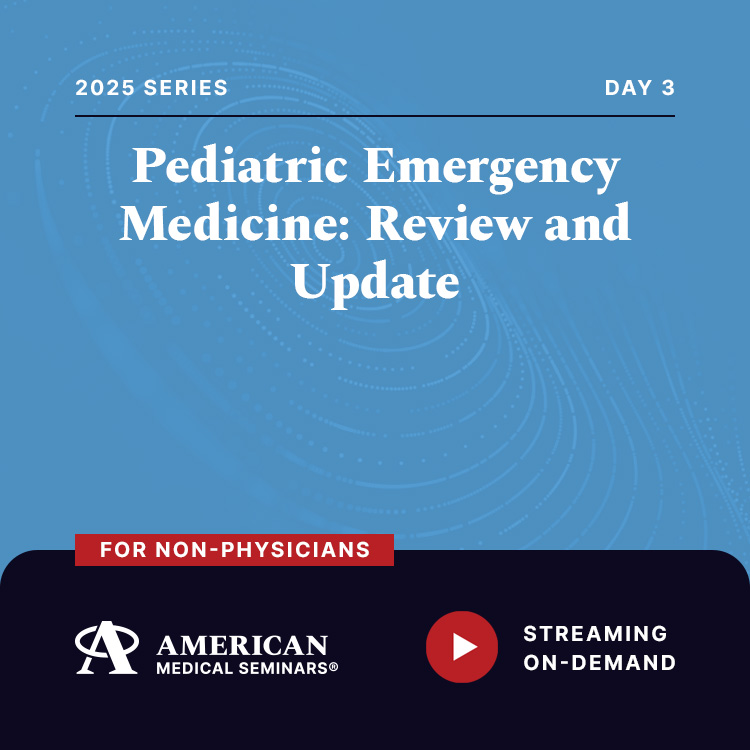Product Description
CME Sponsors: American Medical Seminars, Inc.
Activity Title: Pediatric Emergency Medicine: Review and Update – Day 3
Recorded Dates: 1/29/2025
Original Release Date: July 1, 2025
Expiration Date: July 1, 2028
Presenting Faculty: Mark Joffe; Robert Belfer; Joshua Belfer
Pediatric Poisonings
Attendees of this presentation should be able to:
- Review the data on the epidemiology of pediatric poisonings including recent trends.
- Recommend appropriate gastrointestinal decontamination in a variety of pediatric ingestions.
- Incorporate management strategies for several specific poisonings.
Medical Errors in Pediatrics
Upon completion of this session, the participant should be able to:
- Demonstrate root cause analysis and perform it on cases of medical errors that involve children.
- Assess specific, evidence-based risks for medication errors and strategies to reduce their occurrence.
- Review issues in sleep physiology that relate to medical error risks, and make evidence-based recommendations for sleep management
Visual Diagnosis: You Make the Call
Upon completion of this session, using national Evidence Based Medicine sources including Cochrane Collaboration and published guidelines from sources including the American Academy of Pediatrics, the participant should be able to:
- “Make the correct call” on slides representing interesting physical examination findings of pediatric patients.
- Evaluate the visual presentation of over 25 different conditions to determine the DDx, lab, imaging and/or their respective treatments or referral as indicated. Some conditions to be covered include:
- Testicular Torsion
- Herpes Zoster
- Periorbital Cellulitis
- Mastoiditis
- Erythema Multiforme (Minor)
- Pre-Auricular Adenitis
- Lap-Belt Complex
- Hematuria
Clinical Dilemmas in the Management of Febrile Infants
Attendees of this presentation should be able to:
- Evaluate the risks and benefits of various management strategies for febrile infants under 2 months of age.
- Analyze recent evidence on clinical approaches to managing febrile young infants.
- Interpret data related to the diagnostic evaluation of febrile children aged 3–24 months.
- Describe the impact of widespread vaccination practices on the epidemiology of invasive bacterial infections.
Upper Airway Emergencies in the Pediatric Patient
Attendees of this presentation should be able to:
- Recognize ED presentations of acute respiratory distress in the pediatric patient
- Diagnose/treat etiologies causing upper airway obstruction in the child
- Develop a differential diagnosis for the patient with acute stridor
- The receipt for any incentive-associated purchase will designate the value of the gift card separately from the cost of the learning activity.
- This incentive may have implications on your tax reporting obligations. Any reimbursed amount must be declared as personal income for tax purposes.


